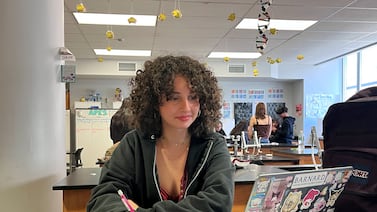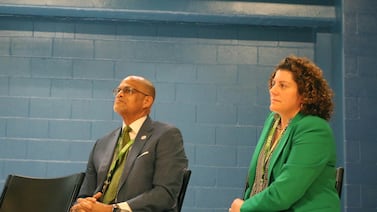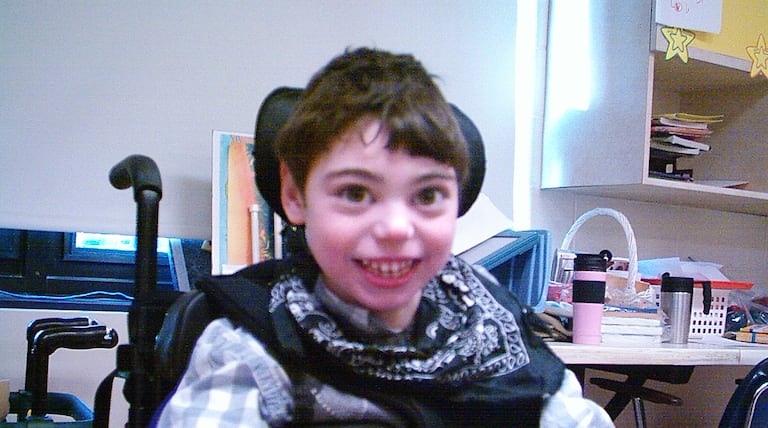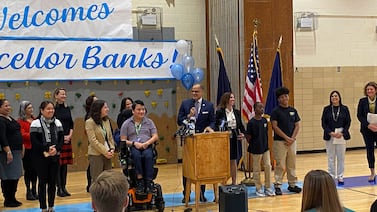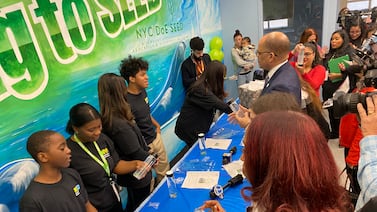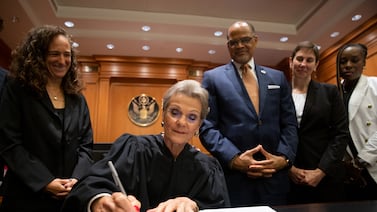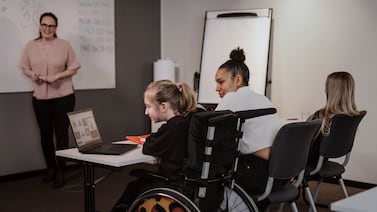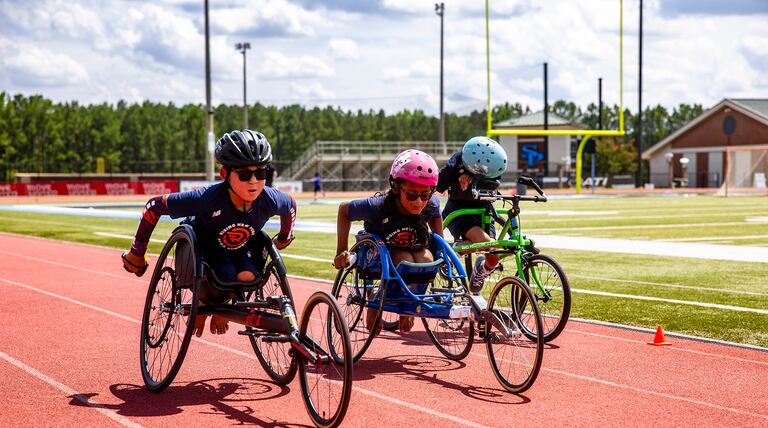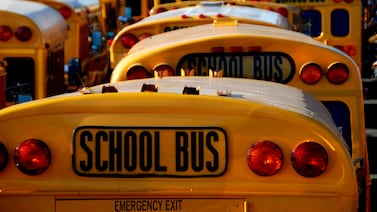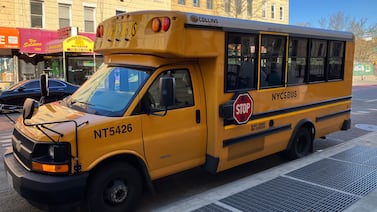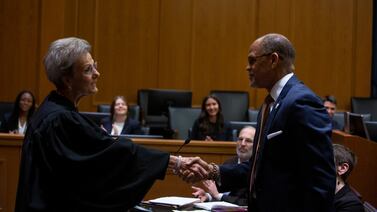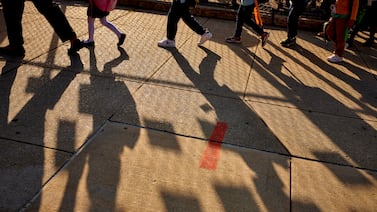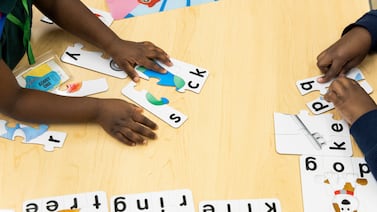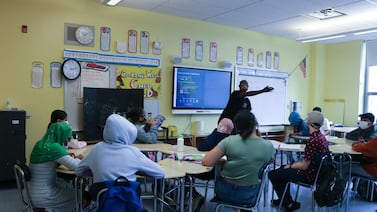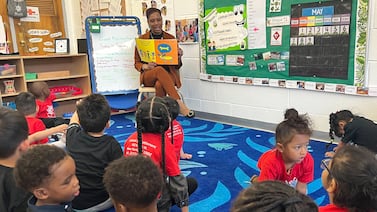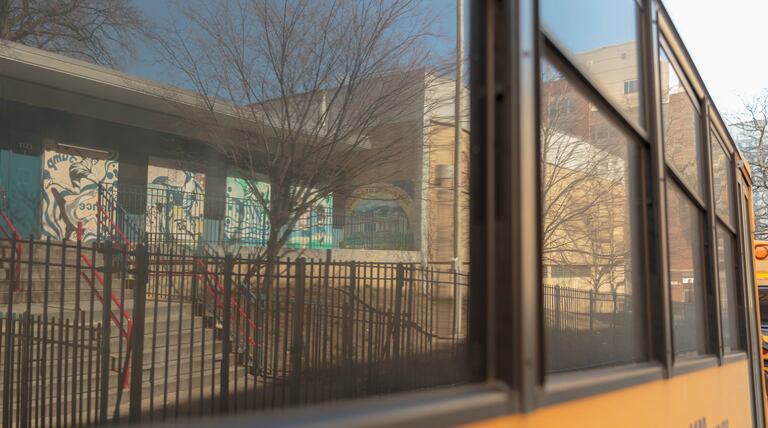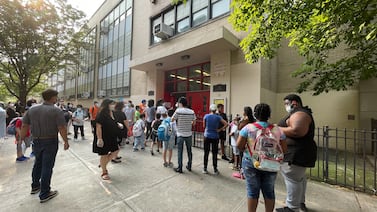Students with disabilities
This episode of P.S. Weekly focuses on New York City’s complex special education system and challenges students face getting accommodations like extra time on exams.
Officials acknowledged their efforts represent a drop in the bucket, but pledged a bigger effort to educate kids with disabilities closer to home.
Children with disabilities will continue to join our community and need to go to school. So why are we still busing them far from home?
Following an outcry from school staffers and advocates over the planned cuts, Education Department spokesperson Nathaniel Styer said earlier this week “we can confirm that there are no school-based cuts happening to D75.”
The cuts would gut extracurricular programming, thin out supply budgets, and exacerbate an already severe paraprofessional shortage, staffers from four District 75 schools told Chalkbeat.
Schools Chancellor David Banks welcomed the court order this summer, but a new report finds the Education Department has already failed to meet some of the first benchmarks.
Lack of access to school buildings has long been a barrier for students with physical disabilities.
Parents and advocates say traditional open houses may fill up quickly or gloss over special education.
In a city where accessibility is a constant challenge, the Rising New York Road Runners Wheelchair Training Program focuses on removing barriers.
The tentative contract agreement comes after tense negotiations and concerns a strike would disrupt the first few weeks of the school year.
A strike could impact roughly 80,000 students across 4,400 bus routes in the five boroughs, according to city officials.
Advocacy group says $1.25 billion in new spending would address major gaps that have left many families frustrated.
The judge outlined 40 specific actions for the Department of Education to take, including assigning additional staffers to overdue cases.
The public health crisis paused state testing, impacting how the state typically evaluates schools.
Brooklyn’s P.S. 958 has an unusual mission: to serve any child in its surrounding community, including those with disabilities who often land in separate schools.
Programs have long struggled to provide all children with the services they need, as they are legally required to do.
With just a month until the school year ends, families are scrambling to find alternate summer programs for their children.
City Council Speaker Adrienne Adams blasted the mayor’s approach to early childhood education, describing the system as “broken” and “in full crisis mode.
In its third year, the program will again have 110,000 spots and will be open to any child in New York City — but there are a couple changes to the application process.

